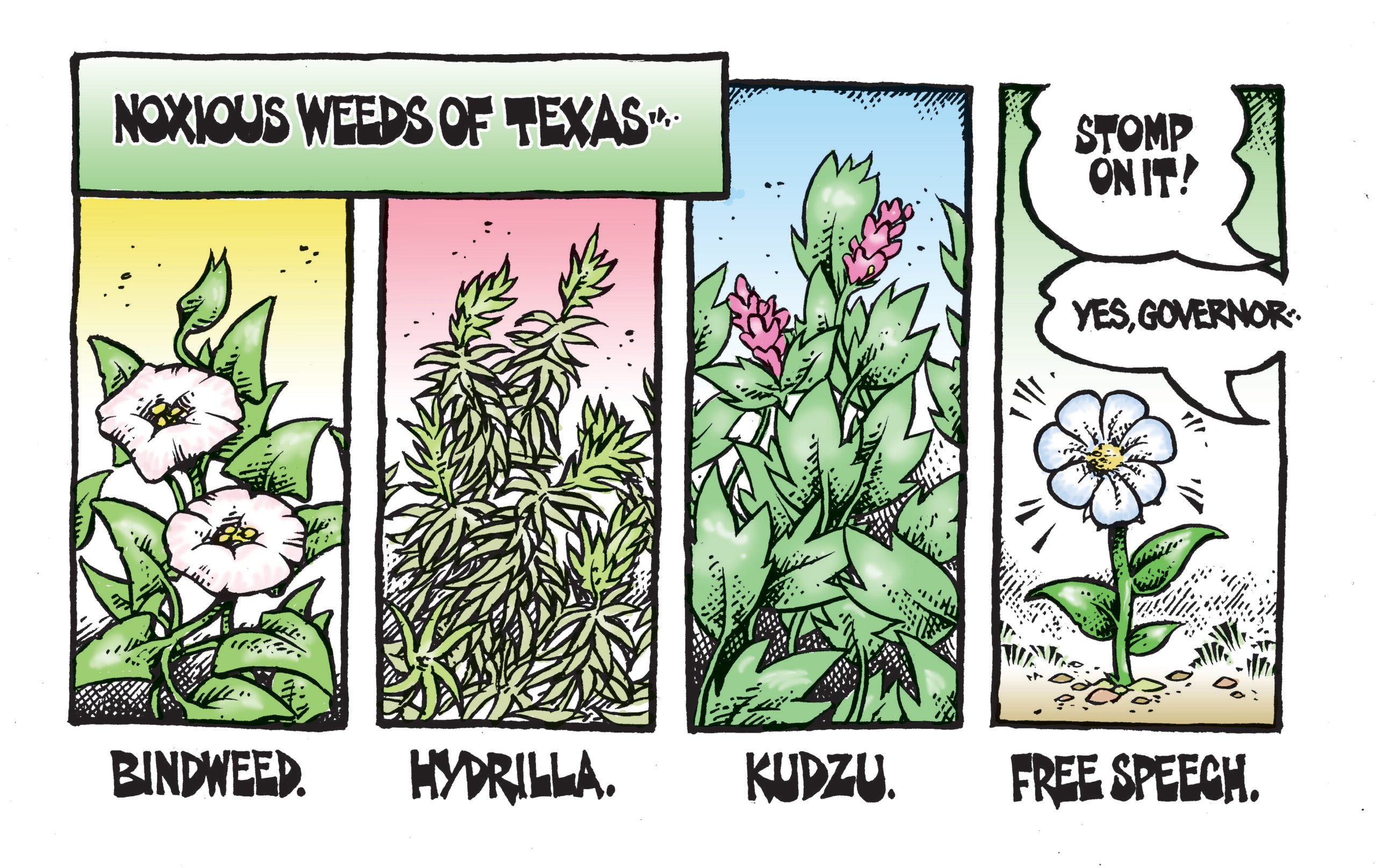ustxtxb_obs_1981_04_03_50_00009-00000_000.pdf
Page 6
`I’ve never been a great believer in severity of punishment as much as I have been in surety of some form of punishment.” COLONEL JAMES ADAMS Director, Texas Department of Public Safety DPS Photo in the entire federal prison system, but there are 30,000 prisoners in the Texas department of corrections, not counting the prisoners in city and county jails. Texas has 35,000 police officers at all levels of law enforcement. “The court system is crowded, the court dockets are crowded,” Adams said. “What we have is a breakdown, where we may make a lot of arrests, but then there either aren’t enough prosecutors or judges, ultimately there aren’t enough jail cells, so it all backs up on you.” In the last five years, Adams said, the number of highway patrolmen in the state has increased 2% while the number of drivers is up 22%. The number of motor vehicles is up 20%, miles driven 22%, and traffic deaths 30%. Pressure on troopers to patrol an average of 133 miles of highway each for traffic violations reduces their ability to help local law enforcement authorities, especially in rural areas, deal with crime. Adams would be willing to consider gun control more favorably but for his conviction that the police are not providing citizens reasonable protection. “Guns are involved in many crimes,” he said. “I guess my great concern, or I guess reluctance, to take hand-guns away from everybody, although it’d make law enforcement simpler: Before you can even talk about gun control, I think you have to be able to say that your police agencies can protect you. And I don’t see we’re anywhere near protecting the public the way it should be . . . . “Reasonable protection. In other words, are you safe on the street? When you leave your home at night, you have to lock your house, you don’t know if even on locking it, you wind up hiding your silverware or your grandfather’s watch.” Adams keeps his own grandfather’s watch in his office. He’d like to have it at home “I’d like to have it out in a little display case. Means a lot to me.” “We have an unsafe society out there,” Adams said. “We have people who are armed to protect themselves, and yet you drive out by a beer joint and see a pick-up truck with rifles in ’em . . . . Yet, I think our police are gonna have to be more effective.” If the criminal justice system ever gets sufficiently effective, there will be “more serious talk about gun control.” However, organized crime has not penetrated Texas, Col. Adams told the Observer. “The Mafia, organized crime in the sense that you’re talkin’ about, they’re about 26 families in the United States with about 3,000 members. None of them are headquartered in Texas.” The closest family is the Carlos Marcello group in New Orleans, he said. “What we see in Texas, though, is money, investments, coming in from the families, in hotels, bars, motels, and other business enterprises, including banks,” restaurants, too, “and we have no jurisdiction over that, because unless the activity becomes a criminal activity per se, we can’t touch it. “We’ve seen some members of the families come in and go out,” either investing and leaving or some of them staying, “but they’re not really here engaged, at least as far as we can determine, in an open criminal activity. Pornography is the closest thing we have to it, and we have some major activity there.” Sure Punishment Adams believes not in harsh but in sure punishment. He recalls from his FBI days that a heavy effort against bank robbers has reduced ricidivism. Every bank robbery is reported and vigorously investigated; about 75% of them are solved, and of those solved and successfully prosecuted almost all the robbers go to the penitentiary. However many other felonies bank robbers may have committed before being convicted of the bank offenses, only 5 or 6% of them were later espied robbing another bank. Adams contrasts this low repeater rate, caused by “surety of punishment,” with the high repeater-rate where there is not such a pattern. “I’ve never been a great believer in severity of punishment as much as I have been in surety of some form of punishment,” Adams said. “In white collar crime, for instance, you have more money taken in bank embezzlements, far more, than you have in bank robberies, and yet how often do you see a bank president, who may have embezzled three or four million dollars, sent to an extensive term in the penitentiary? Rarely.” When he left the FBI, Adams said, the agency had pending 800 bank fraud or embezzlement cases involving more than $100,000 several up into the millions “and the load has become so heavy that the FBI has adopted a threshold that they won’t even work a case unless it involves over $1,500.” The smaller-potatoes bank crimes are thus pushed down onto the state authorities, and this is happening, too, in interstate car thefts “the federal agents are getting out of those.” To reduce the population in federal prisons, Adams said, the federal authorities have adopted “priorities,” leaving large areas of criminal activity perhaps apprehended, but then not punished. “That’s what bothers me the most about our system, he said. “You can’t just keep pushing them down to the state . . . . We don’t have the means of trying the cases or moving them through the system.” For example, “We would have interstate thefts of five or ten thousand dollars stolen. The United States attorney would say, ‘I decline prosecution.’ ” “Crime is outstripping the population increase,” Adams believes, because “there is no real deterrent to criminal activity there is no surety of punishment. “I’d be satisfied if they could develop for some of the more minor crimes work programs, just puttin’ em out in the public library or mowin’ the side of the highway or what, just for some way to make ’em realize they have been caught, they have been prosecuted, and they have been punished, in some way.” Judges have begun using an alcoholcontrol program as an alternative to jail for driving-while-intoxicated offenders. THE TEXAS OBSERVER 9


